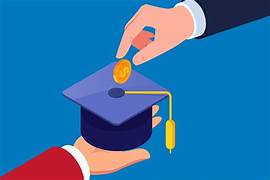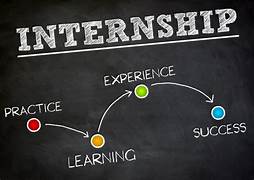Strategies for Paying Off Student Loans Faster
Introduction
Student loans can feel like a heavy burden after graduation. While they’re a common part of many people’s educational journey, paying them off can be a stressful and lengthy process. But don’t worry, there are plenty of strategies that can help you pay off your student loans faster, allowing you to breathe a little easier and build your financial future sooner.
In this article, we’ll dive into practical tips and strategies you can use to tackle your student loans head-on. Whether you’re just starting to repay your loans or have been paying them off for a while, there are ways to speed up the process, save money on interest, and achieve financial freedom. Let’s explore how you can take control of your student loans and start making progress faster than ever.
1. Understand Your Loan Terms and Interest Rates
Know What You’re Dealing With
Before jumping into a repayment plan, it’s important to fully understand the details of your loans. This means knowing your interest rates, repayment terms, and whether your loans are federal or private. Federal loans typically offer more flexible repayment options, such as income-driven repayment plans, which can be helpful if your income fluctuates. Private loans, on the other hand, may have higher interest rates and less flexibility.
The Impact of Interest Rates
The interest rate on your loans has a big impact on how much you’ll end up paying over time. High-interest loans can lead to larger payments and more interest paid over the life of the loan. If you have both federal and private loans, consider focusing on paying off high-interest loans first, as this will save you money in the long run.
2. Refinance Your Student Loans
What is Loan Refinancing?
Refinancing involves taking out a new loan to pay off your existing student loans. The new loan typically has a lower interest rate, which can help you save money over time. Refinancing is a great option if you have a stable income, a good credit score, and a strong financial history. It’s important to note that refinancing federal loans means losing access to federal protections, such as income-driven repayment plans and loan forgiveness options.
When to Refinance
Refinancing is most beneficial when you can secure a significantly lower interest rate than the one you’re currently paying. This is often possible after you’ve gained a stable income and improved your credit score. If you can lower your interest rate, even by a few percentage points, you’ll save money and pay off your loans faster.
3. Make Extra Payments Whenever Possible
The Power of Extra Payments
Making extra payments, even small ones, can have a huge impact on how quickly you pay off your student loans. Each extra payment you make goes toward the principal balance of your loan, which reduces the overall interest you’ll pay. By paying off your loans faster, you reduce the length of time it will take to become debt-free.
How to Make Extra Payments
There are several ways to make extra payments. If you have any additional income from side jobs, bonuses, or tax returns, consider putting it toward your loans. You can also increase your monthly payments or make bi-weekly payments, which effectively gives you one extra payment each year.
4. Take Advantage of Income-Driven Repayment Plans (For Federal Loans)
How Income-Driven Repayment Plans Work
For federal loans, income-driven repayment plans allow you to make payments based on your income and family size. While these plans typically extend the repayment period, they can lower your monthly payment, making it more manageable. Some plans even offer loan forgiveness after 20 to 25 years of qualifying payments.
Switching to a Different Plan
If you’re struggling to make your monthly payments, consider switching to an income-driven plan. However, keep in mind that this can extend the life of your loan and result in paying more interest over time. If your income increases, consider switching back to a standard repayment plan to pay off your loan faster.
5. Make Biweekly Payments
How Biweekly Payments Work
Instead of making one monthly payment, you can split your monthly payment in half and pay that amount every two weeks. This method can help you pay off your loan faster, as it results in making one extra payment per year. For example, if your monthly payment is $400, you would pay $200 every two weeks, leading to an additional $400 payment over the course of a year.
Why It Works
By making biweekly payments, you reduce the amount of interest that accrues on your loan, and you also shorten the term of your loan. Over time, this can lead to significant savings and help you pay off your student loans faster.
6. Use Windfalls or Bonuses to Pay Off Your Loans
What is a Windfall?
A windfall is any unexpected sum of money, such as a tax refund, bonus, inheritance, or financial gift. While it might be tempting to use a windfall for something else, putting it toward your student loans can help you pay off your debt faster and save money on interest.
Making the Most of Windfalls
If you receive a windfall, consider using the entire amount to pay down your loan balance. This lump sum payment can significantly reduce the amount of interest you’ll pay over time and speed up the loan repayment process.
7. Explore Employer Loan Repayment Assistance Programs
What is Employer Loan Repayment Assistance?
Some employers offer student loan repayment assistance as a benefit. These programs can help you pay off your loans faster by contributing a portion of your monthly payment. While not all employers offer this benefit, it’s worth asking about during job interviews or exploring companies that are known for offering student loan assistance.
How to Qualify
In many cases, you must be a full-time employee and meet certain criteria to qualify for loan repayment assistance. Some companies match a certain amount of your monthly loan payment, while others may offer a lump sum annually.
8. Apply for Loan Forgiveness Programs
What is Loan Forgiveness?
Federal student loans offer several loan forgiveness programs for those working in public service, teaching, or other qualifying fields. For example, the Public Service Loan Forgiveness (PSLF) program offers forgiveness for borrowers who work in qualifying public service jobs and make 120 qualifying monthly payments under an income-driven repayment plan.
How to Qualify for Forgiveness
To qualify for loan forgiveness, you typically need to work in a qualifying role for a specific period and make on-time payments. If you qualify for loan forgiveness, you may have the remainder of your loan balance forgiven after completing the required term of service.
9. Consider a Loan Consolidation (For Federal Loans)
What is Loan Consolidation?
Loan consolidation allows you to combine multiple federal loans into a single loan, which can simplify your payments and sometimes lower your monthly payment. However, it’s important to note that consolidation may extend your repayment period and increase the amount of interest paid over time.
When to Consider Consolidation
Loan consolidation is helpful if you’re struggling to keep track of multiple loans or if you want to secure a lower monthly payment. However, if your goal is to pay off your loans quickly, consolidation may not be the best option, as it can extend the term of your loan.
10. Stay Consistent and Avoid Default
The Importance of Consistency
Making consistent payments on your loans is key to paying them off faster. Even if you can’t make extra payments, ensure that you’re making your monthly payments on time. Missing payments can lead to penalties, higher interest rates, and a negative impact on your credit score, all of which can make it more difficult to pay off your loans.
Avoiding Default
Defaulting on a loan means failing to make payments for an extended period, which can have serious consequences. If you’re struggling to make payments, contact your loan servicer to discuss alternative repayment options and avoid default.
Conclusion
Paying off student loans doesn’t have to take decades. By using a combination of these strategies, you can take control of your loans and reduce the time it takes to pay them off. Whether it’s refinancing, making extra payments, or taking advantage of loan forgiveness programs, the key is to stay proactive and consistent. The sooner you start implementing these strategies, the sooner you can achieve financial freedom and focus on the next chapter of your life.
FAQs
1. Can refinancing my student loans save me money?
Yes, refinancing can lower your interest rate, which can save you money over time and help you pay off your loans faster.
2. How can I avoid paying too much interest on my loans?
Making extra payments, paying biweekly, and paying off high-interest loans first can all help you reduce the amount of interest you pay.
3. Does loan forgiveness apply to private loans?
No, loan forgiveness programs are typically only available for federal student loans. Private loans do not offer the same forgiveness options.
4. Is it a good idea to use windfalls to pay off student loans?
Yes, using windfalls like tax refunds or bonuses to pay off your loans can help you pay down your debt faster and reduce the interest you’ll pay.
5. How can I qualify for employer loan repayment assistance?
Check with your employer to see if they offer loan repayment assistance. Many companies provide this benefit to full-time employees as a way to support their financial well-being.
6. Will consolidating my loans lower my interest rate?
Consolidating federal loans may not lower your interest rate, but it can simplify your payments. Be sure to weigh the pros and cons before deciding.
7. What should I do if I’m having trouble making my student loan payments?
Contact your loan servicer to discuss options like income-driven repayment plans or deferment. Avoid missing payments, as this can lead to serious consequences.






